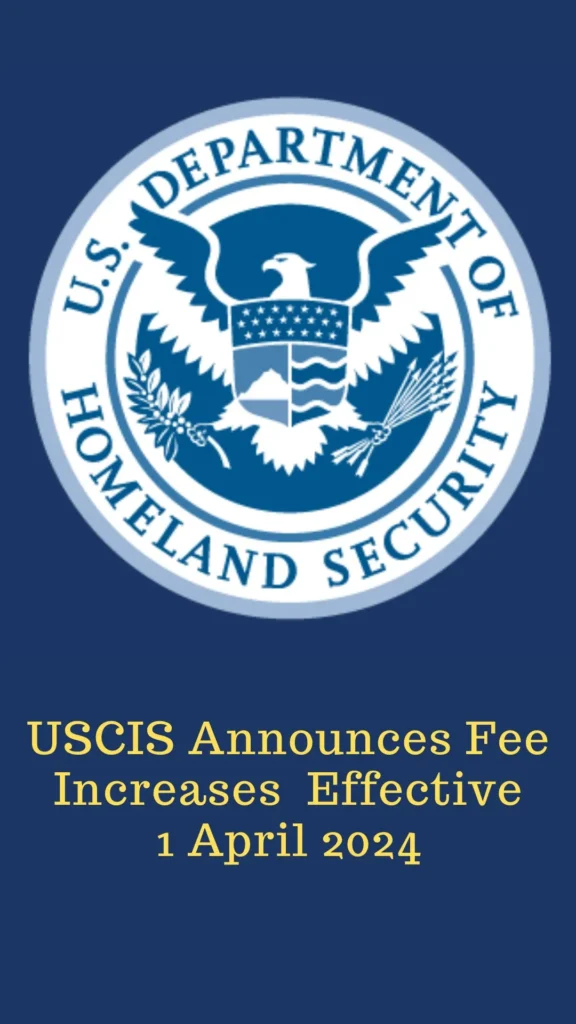The U.S. Citizenship and Immigration Services (USCIS) announces fee adjustments for immigration and naturalization services, marking the first change since 2016.
Effective April 1, these revisions affect various aspects of the immigration process, including employment-based petitions, family-based applications, and naturalization cases.
Fee Adjustments
The fee adjustments primarily impact key immigration processes, notably the H-1B visa registration fee, which will increase significantly from $10 to $215 per registration.
USCIS attributes these changes to aligning fees with operational costs associated with managing the H-1B registration system, aiming for better cost coverage.
Impact on Immigration Applications
Fees for U.S. naturalization applications will see an increase from $640 to $710 for online filings and $760 for applications sent by mail.
Similarly, sponsorship through the I-130 form for certain family members will cost $675 for paper filing and $625 for online filing.
The K-1 visa fee for U.S. citizens bringing a fiancé to the United States will rise from $535 to $675.
Adjustments to Green Card Processes
Applicants filing form I-485 for adjustment of status to permanent residency, commonly known as a green card, will experience a fee increase from $1,225 to $1,440.
Additionally, previously free applications for employment authorization and advance parole under the adjustment of the status process will now cost an additional $260 and $630, respectively.
Introduction of New Asylum Program Fee
USCIS introduces a new asylum program fee of $600 to process petitions for temporary and permanent workers for certain employers.
This fee supports asylum-related operations, including those linked to the Biden administration’s asylum processing rule.
Addressing Concerns and Considerations
In response to concerns raised by organizations such as the American Immigration Council and the American Immigration Lawyers Association regarding the impact on small-business owners, USCIS charged lower filing and asylum program fees to small employers and nonprofits.
Conclusion
In fiscal 2023, USCIS received 10.9 million filings and completed over 10 million pending cases, reducing overall backlogs by 15%.
Additionally, USCIS administered the Oath of Allegiance to more than 878,500 new U.S. citizens.
Director Ur M. Jaddou highlighted the agency’s achievements and efforts to enhance customer experience and reduce backlogs through innovative solutions.
